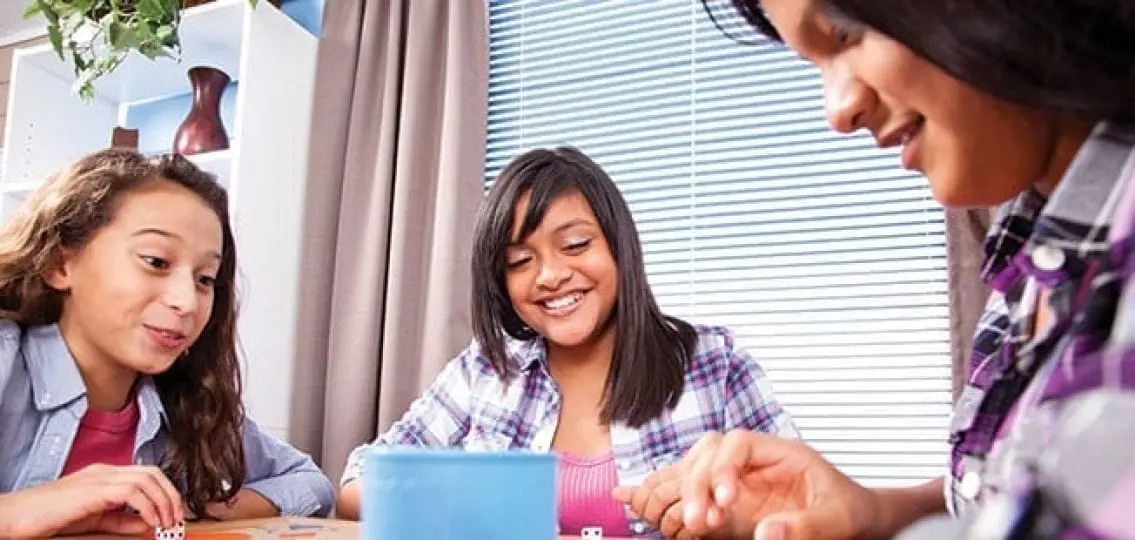Playing board games is a great way to spend time with your teenagers. But did you know that family game night is also a great way to teach teenagers some really important skills?
“By learning to be good at games, you learn how to listen, how to pay attention, and how to be a good loser or winner,” says Nicole Burt, Ph.D. a curator of Human Health and Evolutionary Medicine for the Cleveland Museum of Natural History.
[adrotate banner=”109″]
And that’s just for starters.
Games can also teach teenagers about many things that traditional schooling does not.
“Our school system tends to train teenagers to think, ‘Well what’s the answer?’” says Burt, a biological anthropologist who’s also the co-creator of the game Origins: A Journey of Natural Selection. “So, a lot of kids, particularly by the time they are in high school, aren’t necessarily used to thinking about problems creatively.”
Strategy games like Settlers of Catan, Ticket to Ride, and Carcassonne are great ways to develop your teenager’s problem-solving skills, but even old-school games like Trivial Pursuit can do the trick. “I grew up playing Trivial Pursuit and a lot of people think you either know the answer or not, but that’s not the case,” says Burt. “It’s a game that you can often logic your way through.”
“Being able to figure things out is so much more important than just knowing a lot of facts, in terms of being able to function at a job or function in the world.”
That’s a big part of the objective of Origins, which Burt and her partner, Dr. Mindy Pitre of St. Lawrence University, started developing while in graduate school at the University of Alberta. The goal was to help their students learn the material in their classes.
[adrotate banner=”38″]“We both taught anthropology and osteology—the study of bones—and they are really hard classes. They both have a lot of lingo and a lot of information that students have not had before,” explains Burt.
In addition to helping her students master the material, Burt also found Origins encouraged students to take risks in the classroom they may not have otherwise taken.
“They learn to jump in and engage with the material and that it’s not just about getting the right answer,” explains Burt.
You can do this during family game night with games like Apples to Apples, Taboo, and Code Names—and others in the category of “social games.”
“These are games that are more open-ended, where there are a bunch of answers and the players have to discuss them,” notes Burt.
The cooperative nature of these games is also valuable, helping teenagers learn to work with others toward a goal. “That’s so useful for how the world actually works. Most of us have to work with other people to figure things out.”
So, when’s your next family game night?




